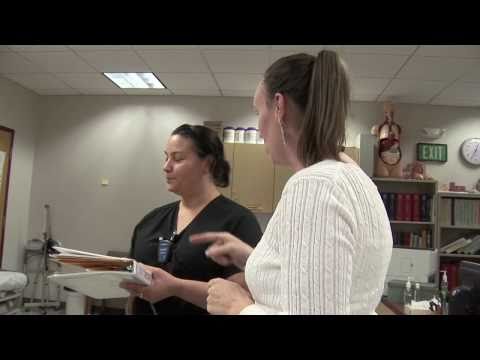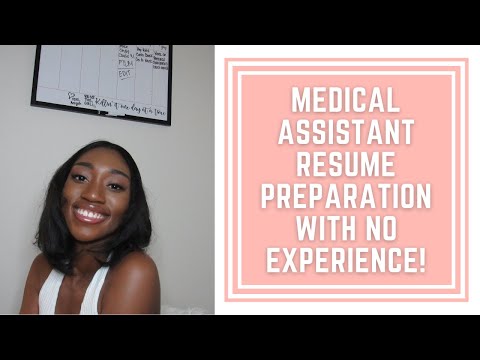Private Practice Medical Assistant Jobs: What You Need to Know
Contents
- What is a Private Practice Medical Assistant?
- Duties of a Private Practice Medical Assistant
- Qualifications Needed to be a Private Practice Medical Assistant
- How to Find a Private Practice Medical Assistant Job
- The Application Process for a Private Practice Medical Assistant Job
- The Interview Process for a Private Practice Medical Assistant Job
- The Training Process for a Private Practice Medical Assistant Job
- The Certification Process for a Private Practice Medical Assistant Job
- The Salary of a Private Practice Medical Assistant
- The Future of Private Practice Medical Assistants
Considering a job in Private Practice as a Medical Assistant? Here’s what you need to know about the position, duties, and more.
Checkout this video:
What is a Private Practice Medical Assistant?
A private practice medical assistant is a medical professional who works in a private practice setting, such as a doctor’s office, clinic, or other healthcare facility. Private practice Medical assistants typically provide administrative and clinical support to the practitioners in their office. Their duties may include scheduling appointments, taking patient medical histories, recording vital signs, and assisting with procedures and treatments. Some private practice Medical Assistants may also perform billing and coding tasks.
Duties of a Private Practice Medical Assistant
Private practice medical assistants typically have a wider range of responsibilities than those working in other medical settings. In addition to the typical duties of a medical assistant such as scheduling appointments and taking medical histories, private practice medical assistants may also be responsible for managing the office, handling billing and insurance claims, and performing basic accounting tasks.
Qualifications Needed to be a Private Practice Medical Assistant
Do you have what it takes to be a private practice medical assistant? Working in a private practice is different than working in a hospital or other clinical setting. Here’s what you need to know about the qualifications needed to be a private practice medical assistant.
Most private practices prefer to hire medical assistants who have at least a year of experience working in a clinical setting. They also prefer candidates who have certification from an accredited medical assisting program. While not required, certification shows that you have the necessary skills and knowledge to be a successful medical assistant.
Private practices also look for medical assistants who are detail-oriented and organized. You will need to be able to keep track of patients’ records, schedule appointments, and handle billing and insurance paperwork. Private practices often require medical assistants to wear scrubs or business casual clothing.
If you think you have what it takes to be a private practice medical assistant, contact a local private practice today and inquire about job openings.
How to Find a Private Practice Medical Assistant Job
Medical assistants work in a variety of settings, including private practices. Working in a private practice can be a great way to get started in your career, or to make a change if you’re already working as a medical assistant. In this article, we’ll cover what you need to know about finding a private practice medical assistant job.
There are a few things to keep in mind when searching for a private practice medical assistant job. First, you’ll need to have your certification and/or training. Many private practices require medical assistants to be certified or have completed an accredited training program. You can find out more about certification and training requirements here.
Next, you’ll want to search for practices that are hiring medical assistants. You can search for jobs on job boards like Indeed or Monster, or you can search for practices in your area on Google. Once you find a few practices that look like they might be hiring, reach out and inquire about open positions.
Finally, once you’ve landed an interview, there are a few things you can do to prepare. First, learn as much as you can about the practice before your interview. This will help you ask intelligent questions and show that you’re truly interested in the position. You should also dress professionally for your interview, and come prepared with questions of your own for the interviewer.
If you follow these tips, you should have no trouble landing a great private practice medical assistant job.
The Application Process for a Private Practice Medical Assistant Job
While the duties of a medical assistant in a private practice may vary depending on the size of the office and the number of physicians, there are some commonalities in the application process. Here are a few things you can expect when applying for a private practice medical assistant job:
1. You will need to submit a resume and cover letter. Your resume should list your relevant experience and educational qualifications. In your cover letter, be sure to explain why you are interested in working as a medical assistant in a private practice setting.
2. You will likely need to complete an application form. This form will ask for basic information about your education and work history.
3. You may be asked to complete a skills assessment test. This test will assess your ability to perform basic tasks related to medical assisting, such as scheduling appointments and taking patient vital signs.
4. You may be asked to interview with one or more members of the practice’s staff, including the physician(s). This is your chance to showcase your knowledge and demonstrate your customer service skills.
5 . Once you have completed all of the above steps, you will likely be asked to provide references from previous employers or educators. These references can attest to your character and work ethic, so be sure to choose them wisely.
The Interview Process for a Private Practice Medical Assistant Job
After you have found a private practice medical assistant job that you are interested in and have submitted your resume, the next step is usually an interview. The following tips will help you prepare for the interview process so that you can put your best foot forward.
First, research the practice beforehand. Look at the website, read any press releases, and try to find out as much as you can about their philosophy and patient population. This will help you to ask informed questions during the interview and to gauge whether or not the practice is a good fit for you.
Next, be prepared to answer common medical assistant interview questions. Some of these may include questions about your experience, why you are interested in the position, what kind of hours you are available to work, and how you would deal with a difficult patient situation. However, don’t simply regurgitate answers that you have heard elsewhere – take the time to personalize your responses so that they reflect your own unique qualifications and interests.
Finally, don’t forget to ask your own questions! This is your opportunity to find out more about the practice and to get a feel for whether or not it would be a good fit for you. Some good questions to ask include:
-What is the typical patient population?
-What are the expectations for medical assistants in terms of patient interaction?
-What is the policy on continuing education for medical assistants?
The Training Process for a Private Practice Medical Assistant Job
In order to work as a medical assistant in a private practice, you will need to complete a training program that will prepare you for the duties of the job. These programs are typically offered at community colleges and technical schools, and they typically last between six and twelve months. During your training, you will take classes on Medical Terminology office procedures, medical billing and coding, and patient care. You will also have the opportunity to participate in an externship, which will give you the opportunity to put your skills to work in a real-world setting.
The Certification Process for a Private Practice Medical Assistant Job
Working as a medical assistant in a private practice is a great way to get started in the medical field. Private practice medical assistant jobs are often more hands-on than other types of medical assistant positions, and they can give you a chance to work closely with patients.
Before you can start working as a private practice medical assistant, you’ll need to go through the certification process. This process includes completing an accredited medical assisting program and passing the certification exam. Once you’re certified, you’ll be able to start applying for private practice medical assistant jobs.
The certification process for a private practice medical assistant job is similar to the process for other types of medical assistant jobs. You’ll need to complete an accredited medical assisting program and pass the certification exam. Once you’re certified, you’ll be able to start applying for private practice medical assistant jobs.
The Salary of a Private Practice Medical Assistant
Salaries for private practice medical assistants can vary depending on a number of factors, including experience, education, location, and the size and type of practice. In general, medical assistant salaries tend to be lower in private practices than in other healthcare settings, such as hospitals or clinics.
The salary range for private practice medical assistants is typically $30,000 to $40,000 per year. However, salaries at the high end of the range may be possible for those with extensive experience or who work in large or prestigious practices. Medical assistants with certification may also be able to command higher salaries.
The Future of Private Practice Medical Assistants
The healthcare landscape is rapidly changing, and with it, the role of the medical assistant is evolving. In the past, medical assistants were primarily responsible for administrative and clerical tasks. However, as the healthcare industry moves towards a more patient-centered model of care, medical assistants are increasingly being tasked with providing direct patient care.
While this shift presents opportunities for medical assistants to grow and develop their skills, it also brings challenges. One of the biggest challenges facing medical assistants today is the uncertain future of private practice medicine.
With the Affordable Care Act and other health reform initiatives in place, many private practices are struggling to stay afloat. As a result, some practices are cutting back on staff, including medical assistants. Others are shutting their doors altogether.
For medical assistants who are thinking about entering into private practice medicine, it’s important to be aware of these trends and to have a Plan B in place in case your job disappears. Fortunately, there are plenty of other employment options available for medical assistants, including working in hospitals, clinics, and other healthcare settings.







